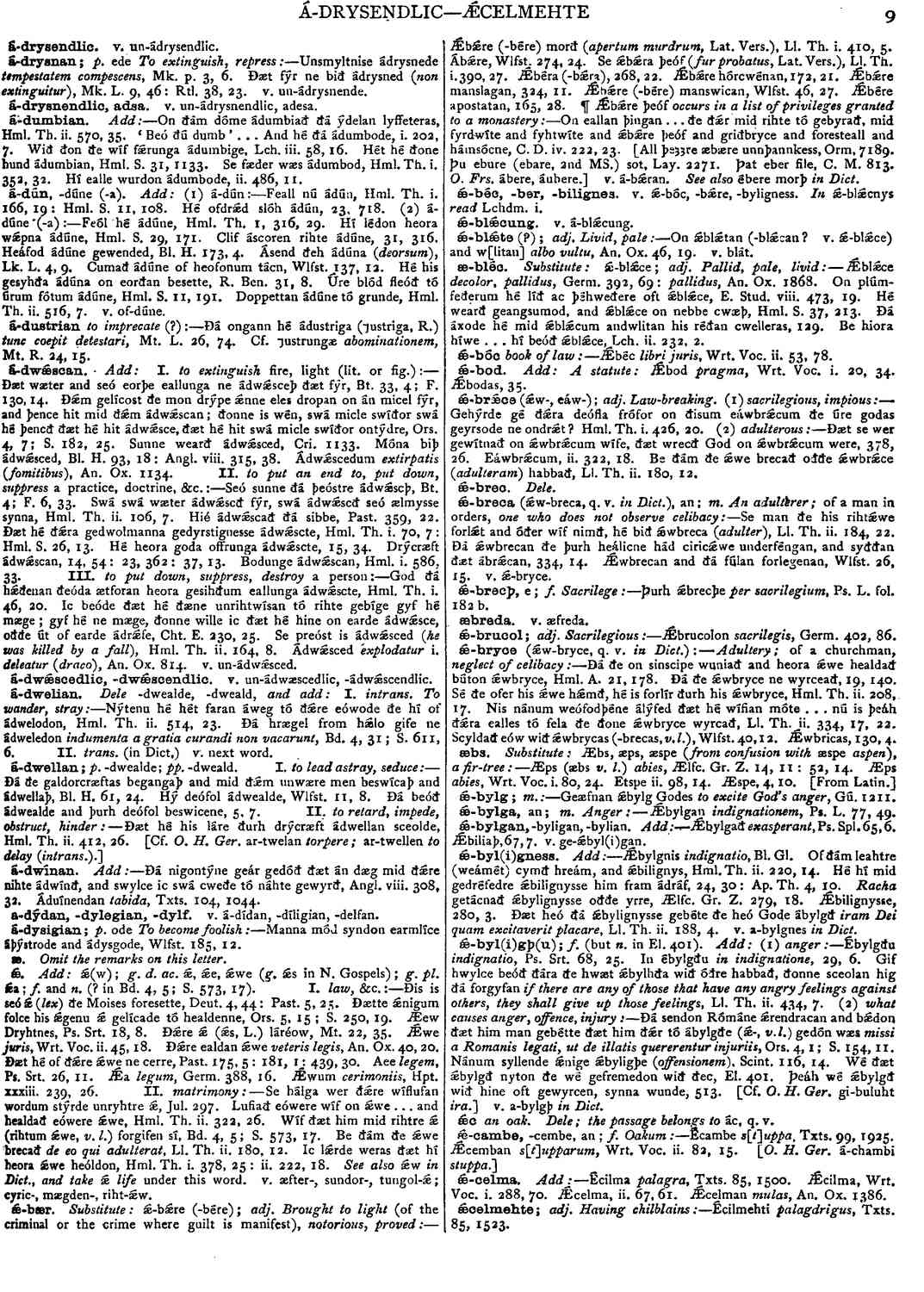ǽ-bær
- adjective
-
Ǽbǽre (-bére) morð (
apertum murdrum,
- Lat. Vers.), Ll. Th. i. 410, 5.
-
Ábǽre,
- Wlfst. 274, 24.
-
Se ǽbǽra þeóf (
fur probatus,
- Lat. Vers.), Ll. Th. i. 390, 27.
-
Ǽbéra (-bǽra),
- 268, 22.
-
Ǽbǽre hórcwénan,
- 172, 21.
-
Ǽbǽre manslagan,
- 324, 11.
-
Ǽbǽre (-bére) manswican,
- Wlfst. 46, 27.
-
Ǽbére apostatan, 165, 28. ¶ Ǽbǽre þeóf
occurs in a list of privileges granted to a monastery
:-- On eallan þingan . . . ðe ðǽr mid rihte tó gebyrað, mid fyrdwíte and fyhtwíte and ǽbǽre þeóf and griðbryce and foresteall and hámsócne,- C. D. iv. 222, 23.
Bosworth, Joseph. “ǽ-bær.” In An Anglo-Saxon Dictionary Online, edited by Thomas Northcote Toller, Christ Sean, and Ondřej Tichy. Prague: Faculty of Arts, Charles University, 2014. https://bosworthtoller.com/37546.
Checked: 0